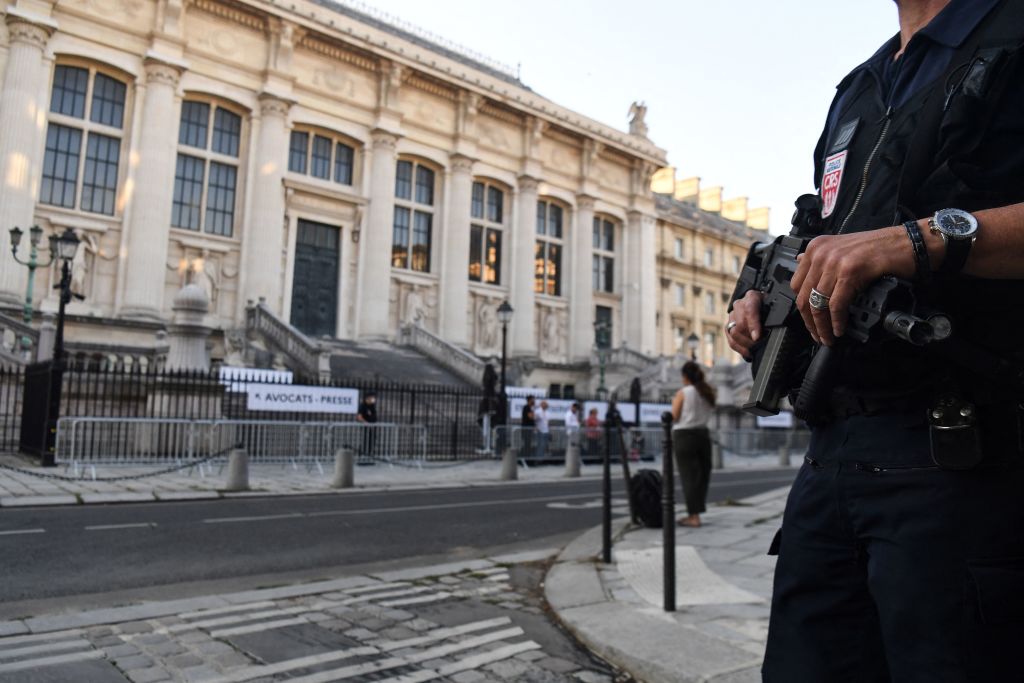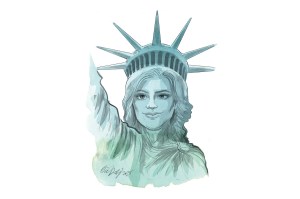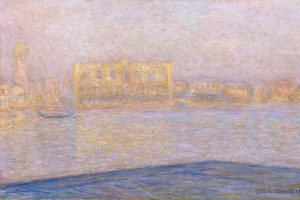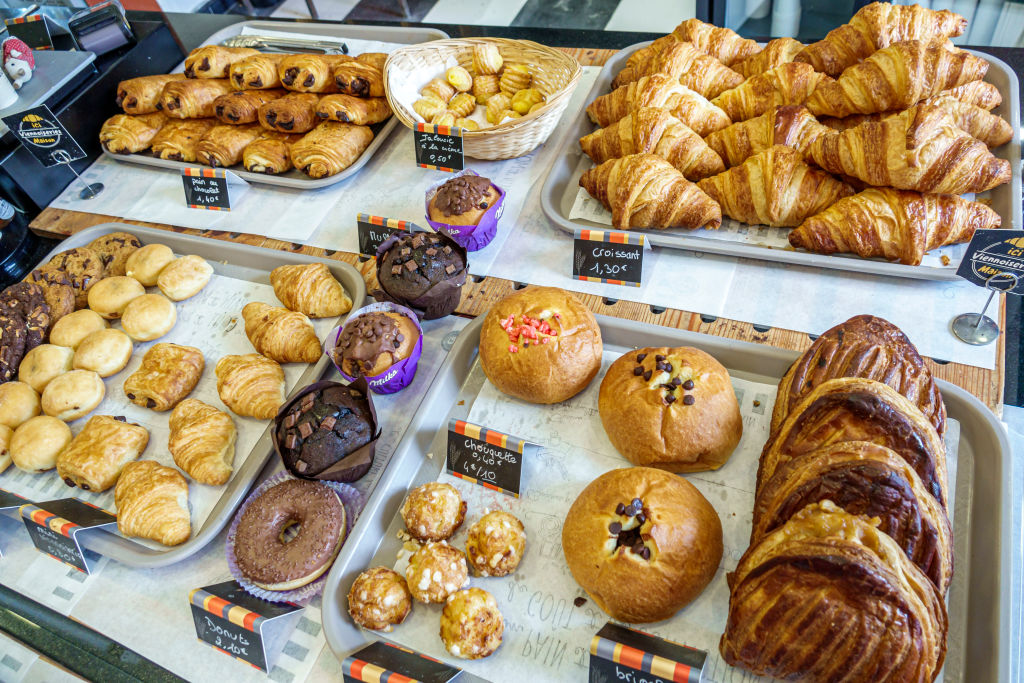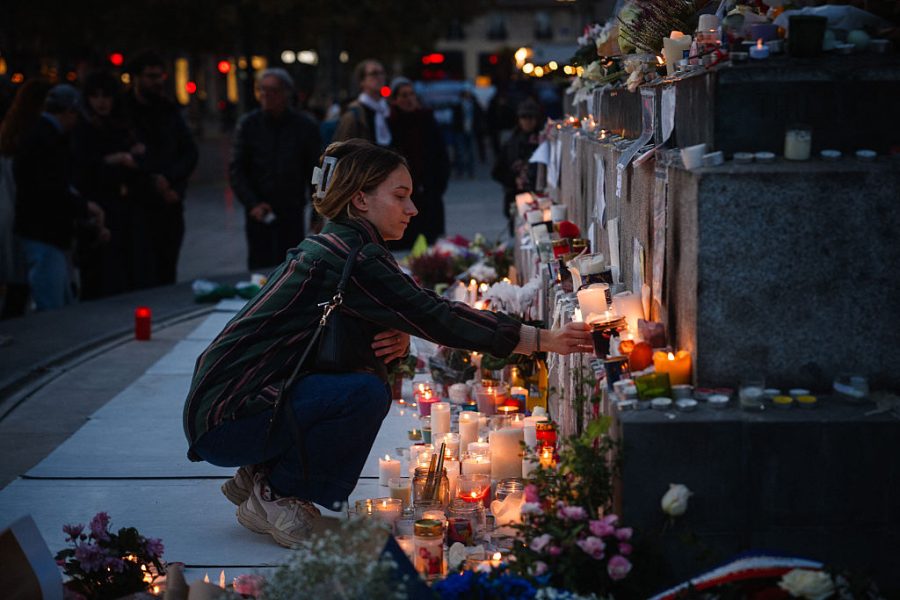It’s a stroke of good fortune for France that Salah Abdeslam is a coward. Had he not been he would have died with the other nine members of the Islamist terror cell (one of whom was his brother) when they attacked Paris on the evening of November 13, 2015.
Instead of detonating his suicide vest, Abdeslam dumped it in a trashcan and then called a friend in Belgium and asked to be collected. He spent the next four months hiding in a suburb of Brussels before police tracked him down.
It’s rare for a potential suicide bomber to be taken alive. In most cases all we have to judge them by is a theatrical video message filmed shortly before their death. The capture of Abdeslam therefore has been a boon. The trial is now in its fourth week and is expected to last until May. So far of the 14 accused, Abdeslam has been the most garrulous inside the sealed dock, appearing to enjoy the attention. Asked to state his profession he replied:
‘I gave up my job to become an Islamic State soldier’.
He later announced that ‘that there is no god except Allah and that Mohammed is his servant’. To which the court president, Jean-Louis Périès, retorted:
‘We’ll see about that later’.
Périès was less phlegmatic last Monday when Abdeslam attempted to justify the slaughter of 130 people. ‘You have to put the Paris attacks in context,’ he said. ‘Without that context, the attacks are unforgivable. French bombs killed an uncountable number of people in Syria. That made November 13, 2015 inevitable. But dialogue is always possible’.
‘You can’t call the cold-blooded murder of innocent people a form of dialogue,’ snapped Périès.
Painful as it is at times to listen to Abdeslam, France can be proud of how it is treating him. Unlike the squalid indignity of Guantanamo Bay, they are subjecting him to a fair and open trial, allowing him a voice.
Two weeks ago, he dismissed the idea that his Isis cell was comprised of ‘terrorists, jihadists, extremists’. On the contrary, he declared, ‘We acted with respect to authentic Islam’.
Such statements are causing some discomfort within western liberal circles. Abdeslam, like all of his ilk, believe that their interpretation of Islam is not, to quote Barack Obama, ‘warped’. Nor, evidently, if he describes himself as a soldier, does Abdeslam think that his is a religion of peace.
Hours after 30 Britons had been shot dead on a Tunisian beach in 2015, David Cameron reached for familiar words to condemn the attackers’ view of Islam. Such terrorism, he said, is ‘not in the name of Islam. Islam is a religion of peace’. The killers, were motivated, he said, ‘(by) a twisted, perverted ideology.’
Abdeslam would disagree. Should we listen to him? Or ignore him?
Emmanuel Macron is aware of the civil war raging within Islam between the moderates and what he calls the ‘radicals’. Last year, he sparked uproar when he described Islam as a religion ‘in crisis’.
For decades, Europe has been a mute spectator to this conflict. But now that the violence has hit closer to home, people are waking up to this ideological battle.
Macron’s recent separatist bill is aimed at eradicating the influence of foreign money and imams, replacing it with a French Islam: an authentic Islam.
Two weeks ago, Abdeslam told the court:
‘I want to be sincere. I know people here are hurt. The minimum we owe them is the truth.’
He’s right. The West needs to hear the truth, not just about that terrible night in 2015, but about the ideology that inspired the killers. It may be ‘warped’ in the eyes of politicians like Obama, but not everyone agrees.
Abdeslam is a coward, but perhaps his frank testimony in the coming months will force the West to confront its own moral cowardice. It is already having an effect in France as campaigning begins for next year’s presidential election, which will be decided in the same month Abdeslam learns his fate.
In recent elections, few candidates have dared to broach the subject of Islamist terrorism. Not this time.
On Thursday night, the center-right candidate Valérie Pécresse took part in a TV debate with the interior minister Gérald Darmanin. Islamism was a theme, with Pécresse describing it as ‘the great totalitarianism of the 21st century’.
Also on television on Thursday night was Éric Zemmour, widely expected to stand on a right-wing ticket. He clashed in a fiery debate with the far-left’s Jean-Luc Melenchon, and at one point declared that ‘Islam is not compatible with France’. Salah Abdeslam would doubtless agree.
This article was originally published on The Spectator’s UK website.



